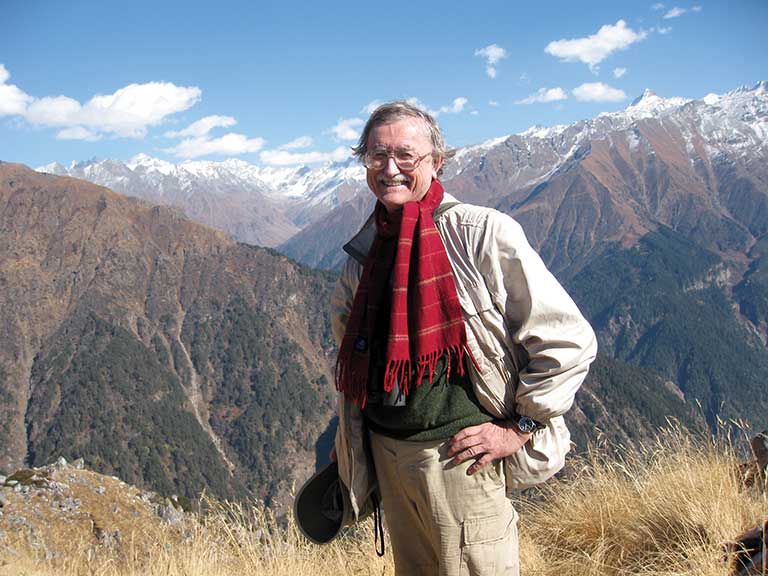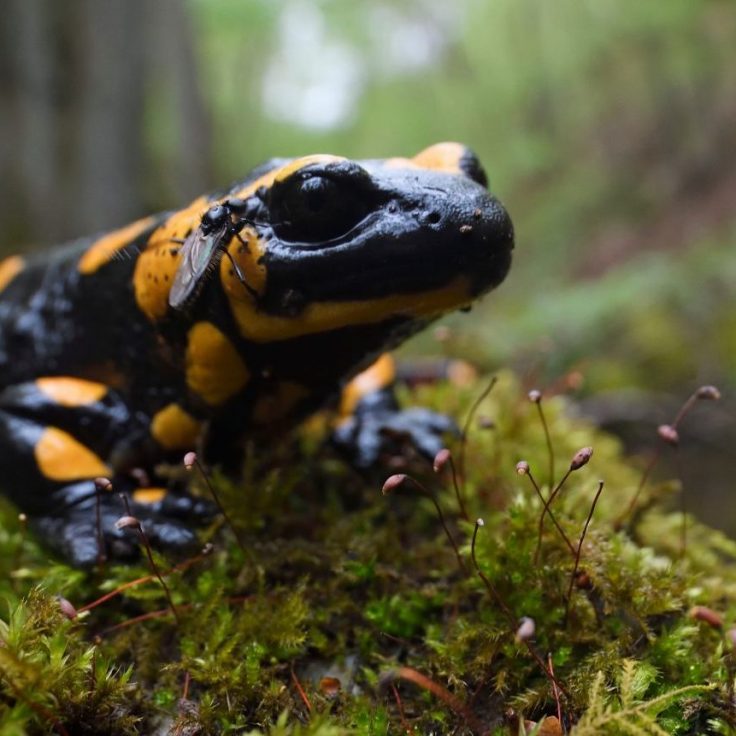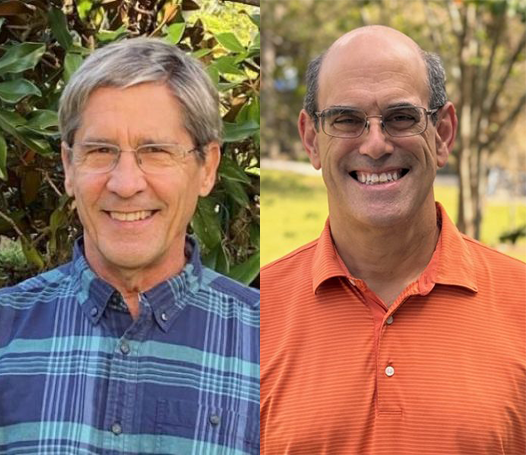
Courtesy Photo
Force of Nature
Modern life, for many, is divorced from the natural world. Ecologist Robert D. Holt finds a way to keep it top of mind.
If it’s true that you can tell a lot about people by examining their bookshelves, theoretical ecologist ROBERT D. HOLT’s sprawling library speaks volumes. Across several rooms in his campus laboratory, you’ll find collections of Shakespearean sonnets, a slew of travel guides to far-flung destinations, rows of bird identification field books, and nearly every genre of natural history. The varied tomes showcase Holt’s self-described approach as an “intellectual generalist.”
Driven by an insatiable curiosity about the world around him, Holt’s diverse knowledge base has helped establish him as a trailblazer in his field. This year, he joined the ranks of science’s most influential contributors with an election to the prestigious National Academy of Sciences. Holt’s groundbreaking work on habitat fragmentation, biodiversity, infectious disease and food chain dynamics has provided a roadmap for more successful environmental resource management, ecological restoration and conservation efforts in the face of climate change.
His interest took hold at a young age. The foothills of Appalachia and the swamps and fields of west Tennessee set the stage for Holt’s early learning. Raised in the comfort of a nurturing agricultural family, Holt found himself retreating into a natural world all his own.
A shy boy, Holt found a passion in birdwatching and thrived in the reflective solitude the pastime provided as he wandered deep in the woods. The outdoors became Holt’s classroom and has remained so throughout his career.
Growing up, Holt also nurtured a passion for amateur astronomy, aiming his telescope toward the sky with a desire to discover faraway realms. The hobby informed his educational trajectory: Holt decided he’d pursue a career as a physicist. Although he veered onto a new career path during his undergraduate studies, the tenets of physics remain invaluable to Holt’s academic philosophy. He thanks an early exposure to computers, theoretical frameworks, and a hefty mathematical foundation for much of his success in ecology.
Through physics, Holt also developed his conceptual framework: He learned that to understand the world’s complexities, you must simplify them. “I’ve gotten a lot of mileage out of my career by thinking through problems, boiling them down to a relatively simple scenario that shines light into the real, complicated world we’re living in,” he said.
Holt’s trademark has been his knack for making associations between things that are invisible to others — a critical skill for an ecologist seeking to address big, applied phenomena in nature. He’s known for his ability to challenge widely regarded and long-held “truths,” turning tenets of knowledge upside down and shaking out any inconsistencies. Holt’s first published paper, which he authored while still in graduate school, challenged conventional wisdom about predator-prey interactions. He defined the concept of “apparent competition,” an indirect interaction of two species through a shared common predator. The theory set the stage for an increased appreciation of indirect interactions in ecological communities, upended views on invasive species management, and continues to echo through conservation efforts today. Holt’s induction to the National Academy of Sciences this year is a culmination of 40 years of prolific, pioneering efforts to push into new frontiers of ecology.
Holt’s fluency in diverse topics also positioned him to become a connector across the sciences. As director of the Arthur R. Marshall, Jr., Ecological Sciences Laboratory, Holt leads large-scale landscape studies, including one of the longest-running field experiments in ecology aimed at understanding the consequences of habitat fragmentation. When faced with the challenges of grasping the overwhelming complexities of Earth’s ecosystems, including the intellectual challenge of fusing ecology with evolutionary biology, Holt’s unifying approach becomes ever more vital.
“Throughout my career, I have enjoyed rewarding intellectual interactions with wonderful colleagues, collaborators and students across the U.S. and worldwide,” Holt said. “Being named to the National Academy of Sciences reflects not only my own contributions and the importance of my field of ecology in the landscape of science, but also my rich and ongoing engagement with this community of scholars and friends.”
As Holt continues to advance an understanding of our natural world, he also provides a model for what can be achieved when we develop an emotional commitment to the environment. He pours his daily work and passion into active concern for the welfare and future of all living organisms. While the human relationship with nature becomes increasingly urgent, Holt invites us to answer the call for knowledge.
“The world is alive all around us, although most people go through life with blinders on,” Holt said. “If you get interested in something, just dive in. You’ll find that the more you learn and the deeper you get into it, the more interesting it gets.”
This story appears in the fall 2022 issue of Ytori magazine. Read more from the issue.


